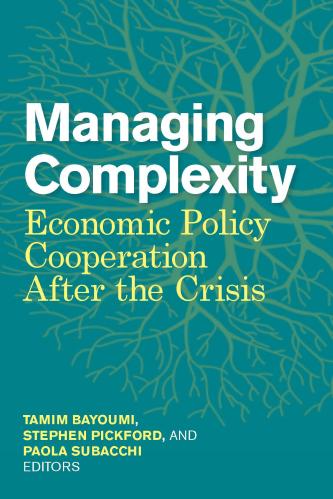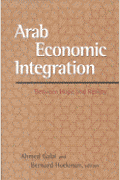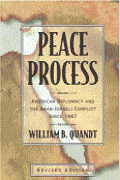Below is a selection of 10 interesting findings from Brookings research published in the month of March.
1. African-American students in California are suspended from school at 3-4 times the state average for all students

One of the findings in Nonresident Senior Fellow Tom Loveless’s latest “Brown Center Report on American Education” is that, in California in 2015, the statewide African-American suspension rate was 17.8 percent (17.8 suspensions for every 100 African-Americans enrolled). For Hispanics: 5.2 percent; whites: 4.4 percent; and Asians: 1.2 percent. “Future efforts at discipline reform,” Loveless argues, “must reflect fundamental fairness while also ensuring orderly schools and welcoming learning environments.
2. Words matter: There is a difference between the U.S.’s “One-China policy” and Beijing’s “One-China principle”

Senior Fellow Richard Bush explains why the verbiage used by officials in the United States, China, and Taiwan differs and matters so much when it comes to relations among the three parties. “In the United States’ relations with both China and Taiwan,” Bush writes, “the verbal formulations used to describe policy are more important than perhaps in any other foreign policy relationship. Indeed, words themselves become policy.”
3. US diplomacy and development spending promotes national interests

In the face of severe cuts proposed by President Trump in his budget to Congress, Senior Fellow George Ingram reminds us that U.S. foreign aid “has contributed to historic successes over the past two decades,” including over 1 billion people lifted out of extreme poverty, eradication or reduction of diseases like small pox and polio, and cutting infant and child deaths in half. “Drastic cuts to the international affairs budget,” Ingram argues, “threaten our national interests and in no way will make American great.”
4. Americans are spending less on energy than at any time in decades

The Hamilton Project at Brookings and the University of Chicago’s Energy Policy Institute have produced 12 economic facts on energy and climate change. The U.S. is exporting more energy than ever, global prices are at their lowest in a decade, and the cost of renewables (wind, solar electricity) has plummeted. “Given this technological and economic context,” the report says, “the United States has perhaps never been better positioned to tackle the urgent threat of climate change. “
5. Three small agencies on Trump’s budget chopping block help struggling regions

Mark Muro, senior fellow and policy director in Metropolitan Policy Program, observes that while the Manufacturing Extension Partnership, the Economic Development Administration, and the Appalachian Regional Commission are relatively small, they are “meaningful components of the nation’s already emaciated efforts to catalyze economic renewal in hard-bitten regions,” including the Rust Belt and Appalachia.”
6. The proportion of large US school districts allowing school choice has about nearly doubled since 2000

In the fifth annual Education Choice and Competition Index, Senior Fellow Russ Whitehurst examines indicators of school choice and competition across the nation’s 100 largest public school districts. “There is no question empirically that opportunities for parents to choose among traditional public schools for their children, to choose a charter school, and to receive a financial subsidy to attend a private school have grown leaps and bounds in the last 15-20 years,” he concludes. “The traditional school district model is no longer the monopoly it used to be.”
7. Vietnam ranks FIRST in new “Health Governance Capacity Index”

New research conducted by Darrell West, John Villasenor, and Jake Schneider looks at the capacity of a set of low- and middle-income countries to attract increased private sector investment in global health and R&D. “By boosting private investment in global health R&D,” the authors conclude, “the world can achieve even more impressive gains in personal well-being and economic growth.
8. Older adults, not just millennials, can make contributions to urban innovation districts
![An older woman stands at the head of a table of mixed-age workers in a modern office space [photo courtesy of iStock]](https://i0.wp.com/www.brookings.edu/wp-content/uploads/2017/03/beyond_millennials_cover_005.jpg?w=768&crop=0%2C0px%2C100%2C9999px&ssl=1)
In this report for the Bass Initiative on Innovation and Placemaking, Jessica Lee explores the mutual benefits when older adults (50 and older) live, work, and support entrepreneurship in cities, particularly in the concentrated areas of innovation and urban amenities. “Innovation district stakeholders,” she writes, “have a unique opportunity to set a new standard for age diversity by designing targeted efforts to attract and retain older adults in their communities.”
9. Entrepreneurship can be an engine for job creation and inclusive growth in the Arab World

Bessma Momani, a nonresident fellow in the Brookings Doha Center, writes that in the Arab World the “economic urgency of providing jobs has become clear following the Arab uprisings, which turned high unemployment rates into a pressing political concern for Arab governments.” In a new report, Momani examines how Arab countries can include entrepreneurship in their job creation plans in order to lower youth unemployment, attain inclusive and sustainable economic growth (one of the UN’s Sustainable Development Goals), and create an ecosystem where small- and medium-sized enterprises can flourish.
10. Lack of employment opportunities for educated people fuels support of violent extremism

Analyzing data from Gallup World Poll and other sources, Kartika Bhatia of the World Bank and Nonresident Senior Fellow Hafez Ghanem find that educated individuals in the Middle East/North Africa region with secondary educations who are un- or under-employed are at the highest risk of becoming radicalized. The authors note that Arab education systems are aimed at producing public sector employees, but that their skills do not match today’s labor markets.
The Brookings Institution is committed to quality, independence, and impact.
We are supported by a diverse array of funders. In line with our values and policies, each Brookings publication represents the sole views of its author(s).





Commentary
10 things we learned at Brookings in March
March 31, 2017